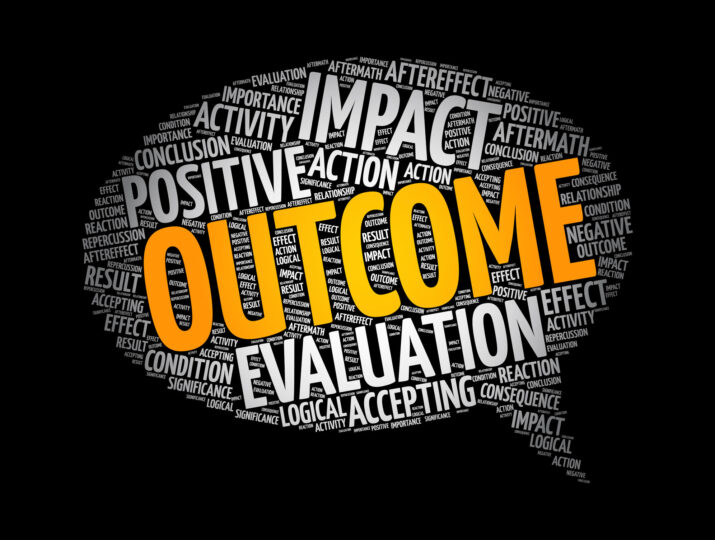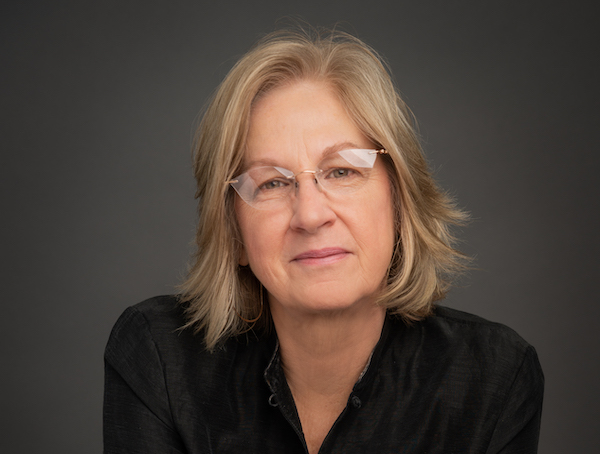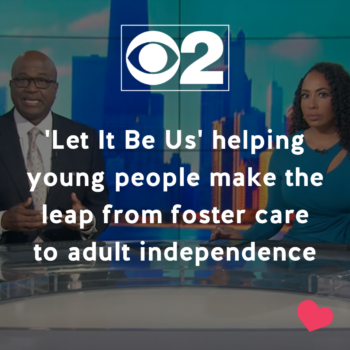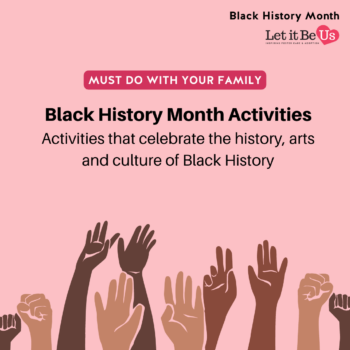Relationships Are Most Impactful for Young People in Foster Care and Those Who Have Aged Out
- Foster Care , Foster Parent Education
- January 30, 2023

A Blog Post for National Mentoring Month
The month of January is National Mentoring Month. It was founded by the Harvard School of Public Health in 2002. According to Harvard economist Raj Chetty, “growing up in a community connected across class lines improves kids’ outcomes and gives them a better shot at rising out of poverty.” As the Executive Director of Let It Be Us, a 501(c)3 and a licensed Child Welfare Agency, we know first hand that when you create a community of teens in foster care and infuse that community with relationships with adults across all sectors those teens greatly benefit.
The Let It Be Us Springboard to Adulthood Program focuses on building relationships between young people in the Program with adults through a family placement or a family-like arrangement. The Program has seen wild success. The Springboard to Adulthood Program is led by a Program Manager who case manages the young people in the program and either matches and places them with a family or offers them a family-like structure by assigning a number of adults to focus on them, set goals, and help them reach those goals. The goals seem small to the outside world, but to this inside world of young people aging out of foster care they are huge. The Program focuses on employment, education, obtaining driver’s licenses, and learning life skills through real life experiences. Each young person in the program is assigned different relationships with functioning adults from all walks of life. The concept is simple. The outcomes are stratospheric.
The team of Springboard to Adulthood families and mentors include retired principals, an English teacher, a programmer, a nonprofit leader, an administrator, and a foster parent, among other professionals who seem like regular people, yet they are actually superhumans. That’s how I think of the adults in this program. They burn the midnight oil waiting for their young people to walk in the door after working a late shift, they come to the rescue when their young people get in trouble trying to buy a car that is beyond their reach, they support them through the ups and downs, all the wins and all the losses. From the sidelines, I watched two of the Springboard to Adulthood parents once sit in the hospital for days on end with their young person who was walloped with a genetic condition that he had no way of knowing about. The adults in the Springboard to Adulthood Program are on 24/7 out of the goodness of their hearts and the passion in their souls.
It was early in our work back in 2014 when we partnered with a group home that housed six middle-aged teens that we got started in the business of providing relationships. The group home provided the programs and Let It Be Us provided the mentors. Our discovery didn’t take long at all. The teens’ lives improved immensely and immediately when they were provided a relationship or two. In short order our mentors solved all kinds of problems and we were extremely proud of increasing the high school graduation rate for the teens in that group home by 75%. We have an award for that accomplishment in our office. It’s a little brown and black plaque that congratulates us on the 75% metric. I look at it every day because it reminds me that we are on the right track. It proves to me that relationships score high.
For the last three years, I have been one of the connections, providing a relationship, to a young person who has been emancipated from foster care. For the sake of this article, I’ll call her Mina. Keep in mind that I am only one of three adults that help Mina walk through her life’s journey. It literally takes a village to help a young person like this who has been fending for herself for literally her entire lifetime.
When I first met Mina she had called and asked to volunteer at a Let It Be Us foster parent recruitment event. Little did I know that her counselor from Northwestern Medicine had found me through Linkedin and had told Mina to volunteer at this event and, at the end of the recruitment event, ask me to be a mentor to her.
When I arrived at the recruitment event, which Let It Be Us held at a big church out in the country in Northern Illinois, I was met by the facilities manager who told me that there was a young girl waiting to meet me. It was Mina. She had arrived early because that’s when she could get a ride. One of my personal gifts is that I am resourceful by nature and nurture and my radar is always tuned in to recognize those who are also resourceful. I knew right away that Mina was resourceful. Turns out I was also going to discover that she is also responsible, creative, optimistic, determined, and highly vigilant. She must have been born with some of these qualities and I have always assumed, since I have known her over these last three years, that she learned some of these qualities from growing up through her years in foster care.
I immediately accepted Mina’s invitation to be a mentor to her as did another woman that I know who is the Executive Director at a partner nonprofit that aids teens in foster care. Mina was cultivating her own village.
Recently I took Mina out to lunch at her favorite restaurant, Panera Bread, and we talked about everything that was on her mind. She is now a 2nd year student at a small college where she majors in criminal justice and social work. Resourcefully, she has applied and continues to apply for every scholarship she can find. Also, resourcefully, she has her own apartment, which is mostly paid for by an assistance program. She has a companion rescue dog that she met while working part-time at an animal shelter where she has learned to become an animal advocate. She is in the process of being hired by a large social service agency for the full-time role of Case Aide and Let It Be Us has hired her as an intern for projects that benefit from having the insight of someone like her with lived experience in foster care. I am so very proud of her.
On the day that we had lunch, as we parted, I suggested that we drive to the nearest gas station and I’d fill her tank up with gas. She drives a reliable beater that she found and paid for on her own. She told me that her “check tire” light was on and asked me to teach her how to fill her tires with air at one of those complicated machines that used to take quarters and now only takes credit cards. Talk about turning something simple into something available only to those with a credit card. That is a perfect example of serving only those who are privileged. This experience opened my eyes to the fact that this young person may be in jeopardy should her car ever break down while on the drive to school or to work. Now Let It Be Us provides AAA Roadside Assistance to all young people in our Springboard to Adulthood Program who drive cars. If they get in trouble they are instructed to make the first call to AAA, and the second call to their Springboard to Adulthood parent or mentor.
One of the other adults in Mina’s life, who has been matched with her through the Let It Be Us Springboard to Adulthood Program, is a single woman who is a licensed foster parent and she parents three little ones. All three are in foster care. Mina loves to go to her house and help out and sometimes babysit. When she babysits the foster mother pays her. It works out for everyone. I hope to meet this other woman in Mina’s life one day soon. I’d like to thank her in person. But people like this often scoff when you thank them. It’s just what they do. It’s ingrained into their being. They only recognize it as one of the simple things they do. To Mina it’s monumental.
Once every two weeks we have a big meeting with the Let It Be Us Springboard to Adulthood team – the Program’s Manager and some of the springboard parents, two of whom have been working in programs like this for decades. One is a retired principal of an elementary school and the other is a retired principal of an alternative high school. The experience between the two retired principals is mind blowing. Between them, they are the Springboard to Adulthood parents to three young people.
What I like about these meetings is that we go through every case in the Program and, for the most part, I listen and I beam. The team’s all got it and they really don’t need me for any direction. But what I learn at the meetings feeds my soul and gives me important information to tell donors and supporters. All of our programs at Let It Be Us are privately funded.
Overall, I believe in programs that support young people from foster care with financial needs and material needs. But more than that, I believe that these young people need long-term and steady relationships. Because it’s these relationships that get these young people through the thick and thin of life and teach them lessons that will last, and continue to last, a lifetime.

Dr. Susan A. McConnell is the Founder and Executive Director of Let It Be Us, an Illinois licensed child welfare agency with the mission of providing collaborative, innovative solutions of effective recruitment and placement within Illinois foster care and adoption. Susan has an MBA from DePaul University and a Doctorate Degree in Social Work from the University of Southern California, where her work focused on permanency within child welfare. She is the Chair of the Permanency Committee of the Illinois Statewide Foster Care Advisory Council, appointed by the Director of the Illinois Department of Children and Family Services (DCFS) in 2017. She is also an adoptive parent with over 30 years of open adoption experience. She can be reached at susanmcconnell@letitbeus.org.
About Let It Be Us



